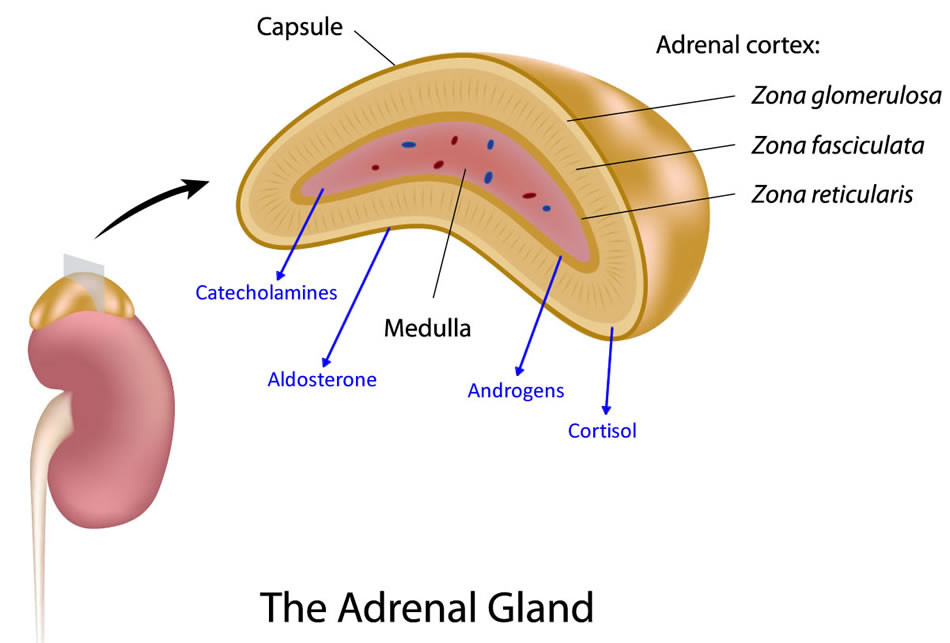Adrenalectomy
Why Adrenalectomies are Performed
These are the most common reasons that a person might need to have an adrenal gland removed:
- Hyperfunctional tumors: tumors in the adrenal gland that inappropriately overproduce hormones.
- Incidentalomas: tumors in the adrenal gland that are incidentally found by an imaging study performed for some other reason. (Not all incidentally found adrenal tumors need to be removed.)
- Adrenocortical carcinoma: a rare malignancy of the adrenal glands.
- Metastases: cancer that originated in another part of the body and spread to the adrenal glands.
Structure and Function of the Adrenal Glands
The adrenal glands are two triangular-shaped glands located on top of the kidneys. They release hormones that regulate various biologic processes in your body. Adrenalectomy is the surgical removal of one (or very rarely, both) of the adrenal glands.
The outer part of each gland is called the cortex. It produces the following hormones:
Cortisol: a hormone released in response to stress. Its primary functions are to increase blood sugar, suppress the immune system, and help with the metabolism of fat, protein, and carbohydrates.
Aldosterone: a hormone that plays a central role in the regulation of blood pressure.
Androgens: sex hormones.
The inner part of the adrenal gland is called the medulla. It produces catecholamines, hormones that are released in response to stress.
Approaches to Adrenalectomy
Adrenalectomy can be performed in two ways:
- Open surgery
- Minimally invasive (laparoscopic) surgery
The preference of one approach over the other will depend on preoperative diagnosis, size of tumor, concern for malignancy, prior surgical history, and patient preference.
This information is provided by the Department of Surgery at the University of Colorado School of Medicine. It is not intended to replace the medical advice of your doctor or healthcare provider. Please consult your healthcare provider for advice about a specific medical condition.
